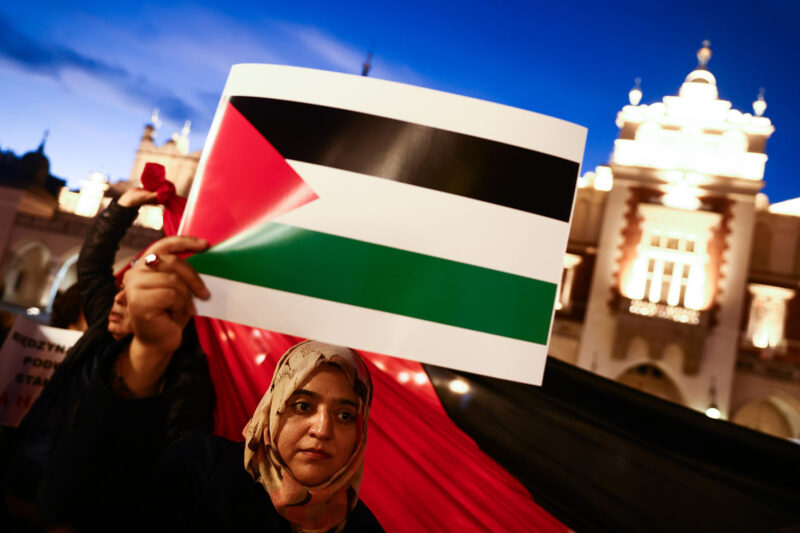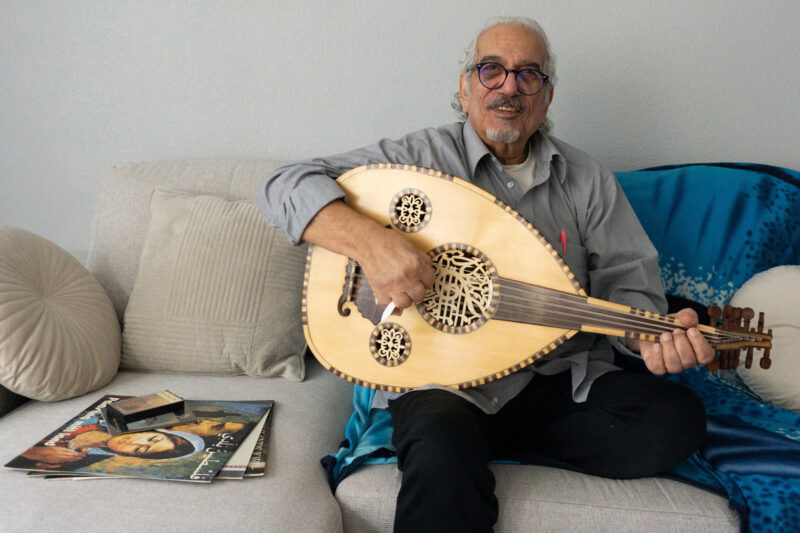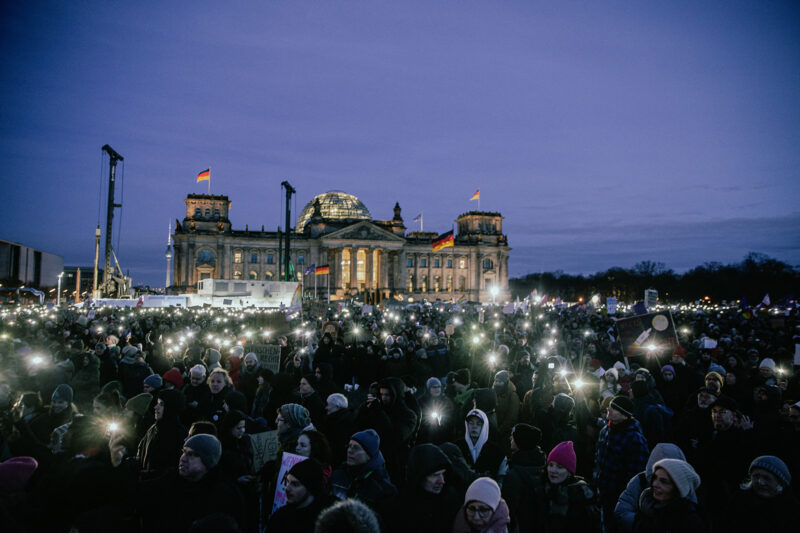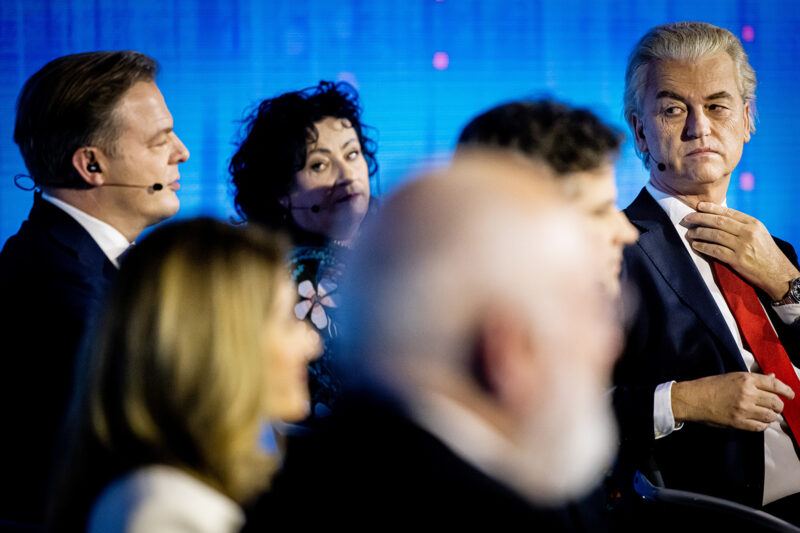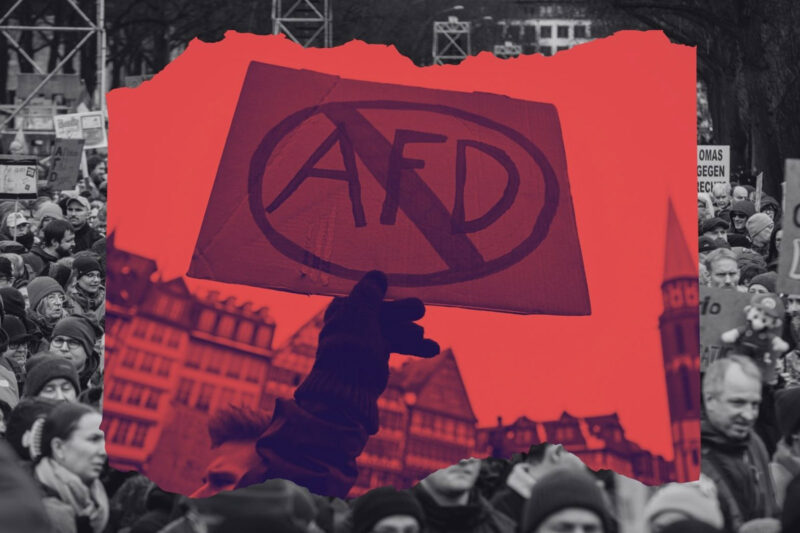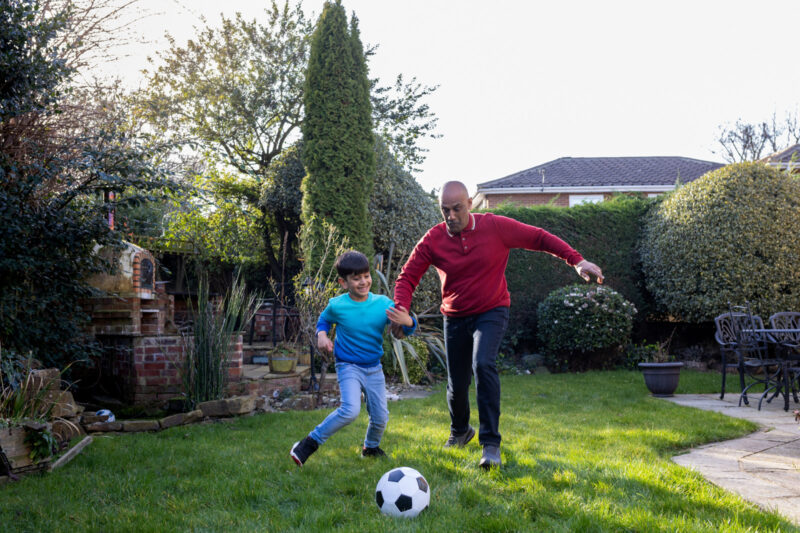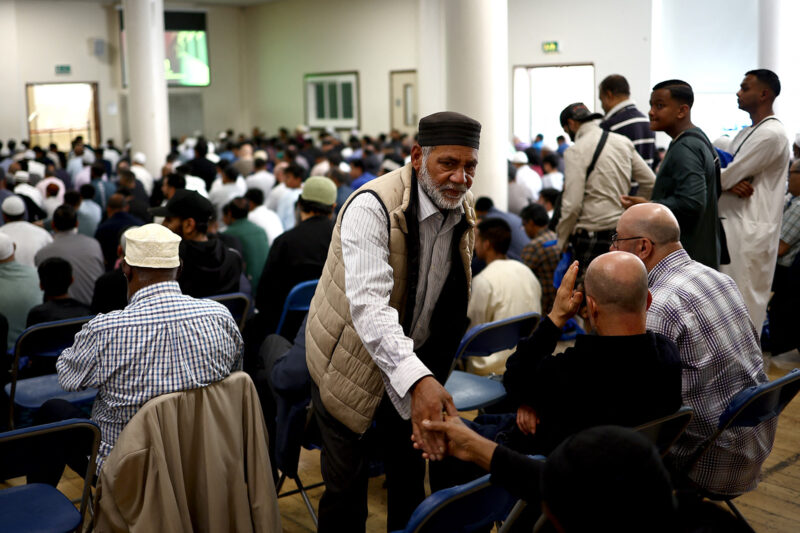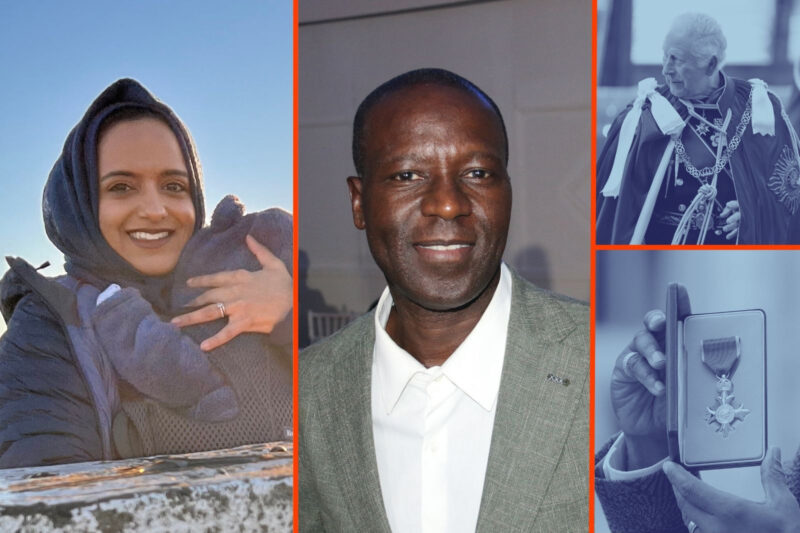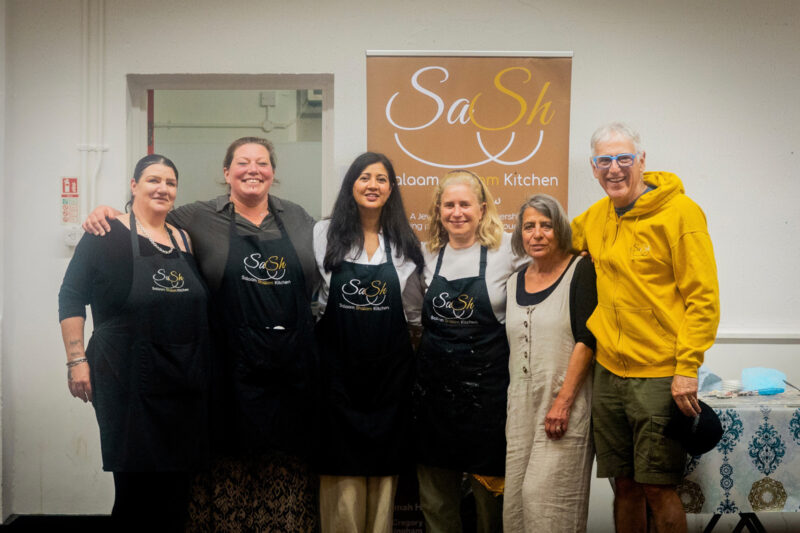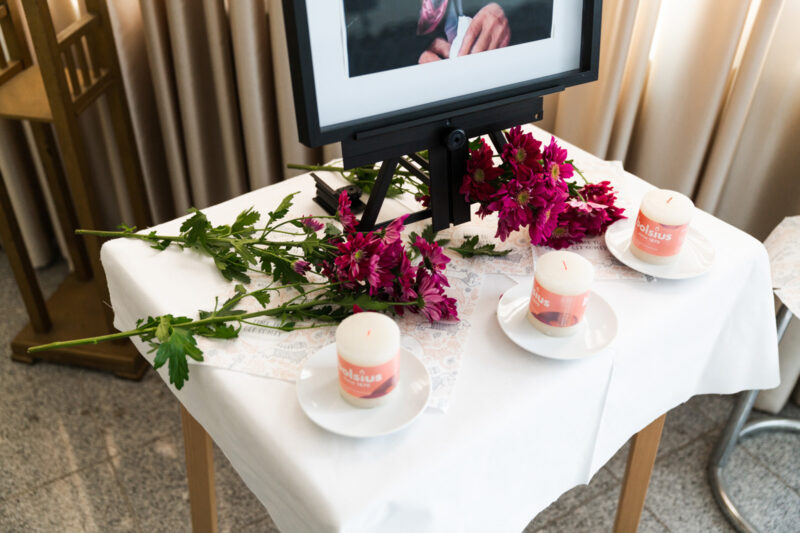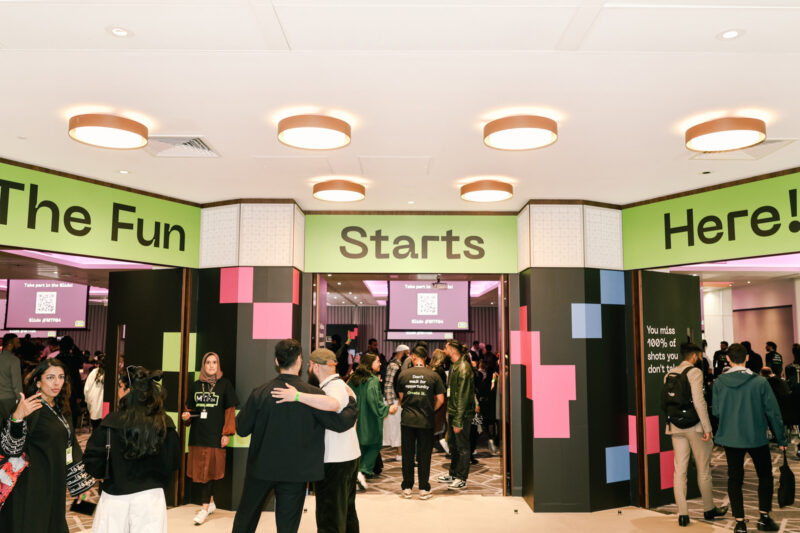How has the Israel-Palestine conflict affected interfaith relations in Europe?
Religious leaders from Spain, Germany and Sweden speak about events in the Middle East and the consequences for their communities
–
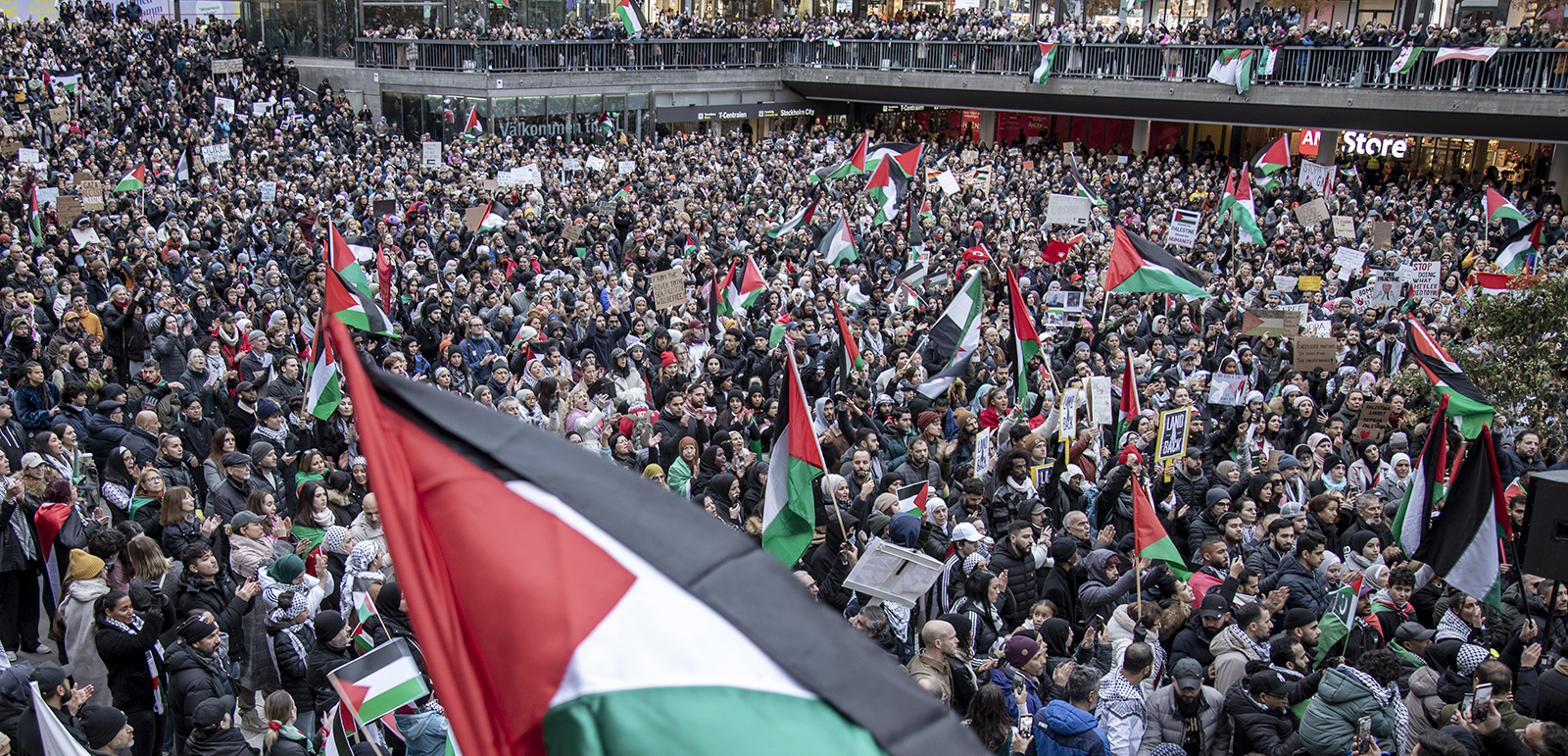
The dramatic and deadly escalation in the conflict between Israel and Palestine is fuelling a surge in racism across Europe. Senior rabbis have warned that antisemitism is reaching levels unseen in decades. Islamophobia and hate speech against Muslims is also on the increase. A survey of 13 countries, conducted in 2022, by the EU has revealed that racism on the continent is “pervasive and relentless”, with nearly half of Black people surveyed reporting discrimination.
Hyphen spoke with three faith leaders to get their views on how European Muslim and Jewish communities are being affected by the conflict but also how their communities are supporting each other. Scharjil Khalid is the imam of the Khadija Mosque in Berlin and the Islamic theologian of the Ahmadiyya Muslim Jamaat. Maxo Benalal is the secretary general of the Federation of Jewish Communities of Spain. Yasri Khan is the secretary general of Swedish Muslims for Peace and Justice.
Hyphen: What immediate impact has the war had on your community?
Scharjil Khalid: Whenever there’s an attack by an Islamist extremist group there’s the expectation that Muslims must condemn this action, and they have to condemn it openly and regularly, not just once. Muslims are also facing a lot of Islamophobia and racism. In the first three weeks [after the Hamas attacks on Israel on 7 October], we had three cases of Islamophobia every day. That’s about 60 [cases] in three weeks, and more than 10 attacks on mosques. It’s also the first time we are receiving hate speech online.
Maxo Benalal: The impact on the community has been significant. Many of the members have family in Israel, some of them have family in the army, and some of them have family members who died during the terrorist attack. The links with the other communities have been very positive, we’ve had support messages from most other religious communities. We’re suffering. Things are not good for any of us, they’re not for us and not for Muslims.
Yasri Khan: The pictures that are being spread on social media and in the news [about the Israeli military assault on Gaza] have a very strong effect on a lot of Muslims who feel powerless and disempowered. They see this and they want to act, but they don’t know what to do. They want to send money and aid, but the entire place [Gaza] is under a blockade.
Hyphen: Are you noticing increased aggression towards your community since the war broke out?
Scharjil Khalid: We have 80 mosques in Germany for our community, and they are secured with cameras and security. A few months ago, there was just security on Friday because it’s the holy day in Islam, and now it’s every day. Many students avoid going to school or they’re silent because of this environment created by teachers [who ask students to condemn Hamas], the classmates are also asking, and in some cases bullying the Muslim students.
Maxo Benalal: We’ve experienced a huge increase in antisemitic attacks. Verbally, via the press, with the paintings on our institutions and on the houses of committee representatives. They’ve been concentrated in the largest cities – Madrid and Barcelona – but we’ve seen the problem all over the place. Representatives of communities are being extremely careful about where they go and what they do because you’re always exposed to someone [potentially] saying something or doing something.
Hyphen: Has the recent violence affected your dialogue with other faiths?
Scharjil Khalid: Just three days after the attack of Hamas on Israel we held an inter-religious peace prayer by the Brandenburg Gate in Berlin with nearly every representative of the world’s religions. But the problem is that there’s no media interest in this kind of project, they’re focusing on bad news. There are so many positive things being done, especially interfaith programs. There have been some attacks on synagogues, and we visited them, we’ve written emails of condolence. We have a close relationship with this community, but the problem is that normal people are not getting this information.
Maxo Benalal: In Spain, we’ve always had very positive relations with all other faiths. We have organised many interfaith meetings and actions, and I have personally very good relations with the representative of the Islamic Commission of Spain. I’ve had lunch meetings these past days with ambassadors from Islamic countries. We’ve had very positive contacts with the Roman Catholic Church, Anglican Church, Orthodox Church, and Muslim representatives have called us. The thing is that this is not an interfaith problem, this is a problem between Israel and a terrorist group. Trying to place it as a religious conflict is not what I think it is.
Yasri Khan: There was a project in southern Sweden between Muslims and Jews — a very good initiative called Amanah — and that kind of broke apart as a consequence of what is happening now.
Hyphen: What would you like to see and hear from political leaders?
Scharjil Khalid: I would like to see them try to comprehensively present the scenario of the war from different points of view. In Germany especially, they’re saying that we are in solidarity with Israeli people, so many people understand this message as the life of an Israeli is worth much more than a Palestinian life. A simple sentence I would like to hear politicians say is “I’m in solidarity with Israeli civilians and also Palestinian civilians”.
Maxo Benalal: Spain has a very peculiar situation as far as political leaders go because we have a government which has many BDS and anti-Israeli activists. So although we’re getting positive support from the prime minister, we would like the government to be clear when they talk and make things much clearer to the population. Mixed messages profoundly distress the population, not the Jewish one, but the basic population in Spain, which actually doesn’t know what to think, or say, or do.
Yasri Khan: We see that we have a populist, right-wing rise in western countries and a lot of people who want to incite conflict between people of different ethnicities and religions. Muslims are not exempted from that, they’re actually targeted. So you have a lot of people who emigrated to Sweden, but you also have a big Muslim community who were born and raised in Sweden. And this doesn’t really make people feel at home or at peace with society, because it creates an uncertainty of “Am I welcome here? Am I part of this society? What does the future hold for me?”.
Hyphen: What would your message be to the wider society concerned by the conflict?
Scharjil Khalid: In Germany, we are focusing on the wrong topics. We are talking about integration and migration, which has nothing to do with this conflict. We’re talking about Islamophobia and antisemitism, but this conflict is not about that, it’s about territories. If we are not focusing on the main issues of this conflict, then we will forget the task we have to focus on.
Maxo Benalal: I would like people to understand that this is not a religious problem, but that it’s a concentrated problem in an area of political conflict. We Jews are not the enemies of Muslims, that’s not how we see things, that’s not how we’ve ever seen things. We’re both semitic so our origins are the same, our patriarchs are the same. I would like people to be objective and to see things as they are, and don’t see this is an attack against Jews, that they have to attack Jews, or that we are in a religious war, because that’s not the case.
Yasri Khan: One of the things that is being highlighted is that antisemitism is growing and of course, it’s not a good thing and we have full sympathy with our Jewish brothers and sisters. At the same time, I think a lot of Muslims are feeling a bit agitated that [growing] antisemitism is being highlighted but not Islamophobia or the increased threat against Muslims. We see people feeling a discrepancy between their experience of reality and how things are being portrayed in the mainstream media and by Swedish politicians. We also have to see these things in a context where Sweden has gone through the Quran burnings. Already when Syrian refugees came to Sweden, they got a different treatment than you saw the Ukrainian refugees get, and you see the Russia and Ukraine war described differently.
 Newsletter
Newsletter

